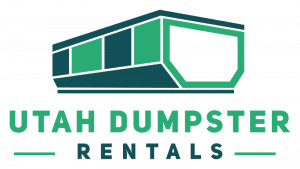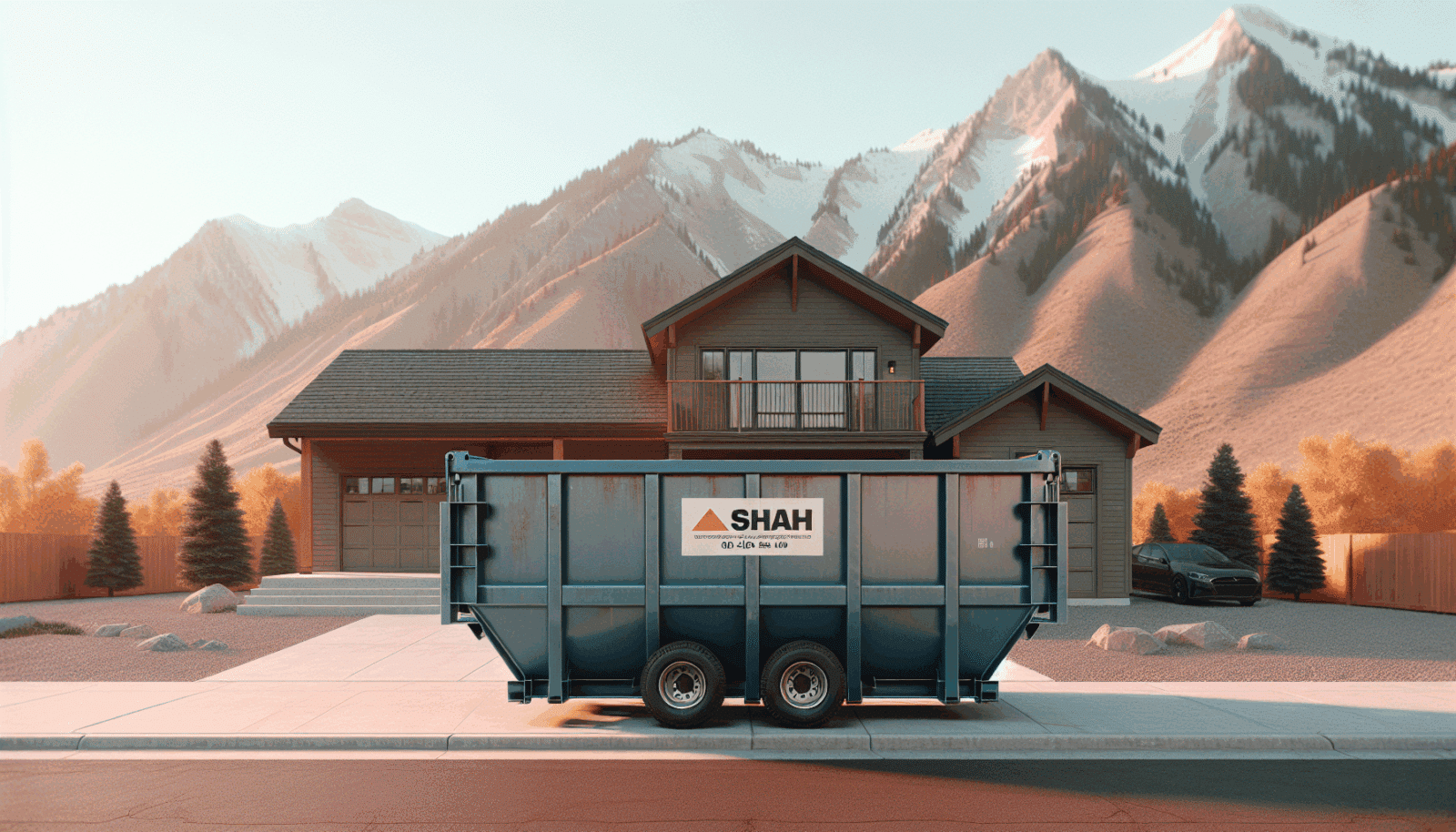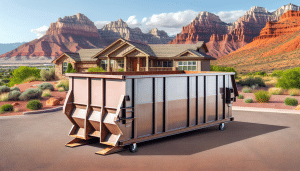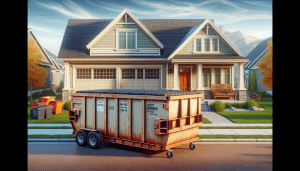When embarking on a construction project, choosing the right dumpster rental is crucial for efficiency and cost-effectiveness. Here at Utah Dumpster Rentals, we’re dedicated to helping homeowners and project managers make the best choices for waste management. In this blog post, we’ll guide you through the process of selecting the ideal dumpster for your needs. From understanding your project’s requirements to determining the perfect size, we’ve got you covered.
Contents
Understanding Your Project Needs
Before you dive into renting a dumpster, it’s essential to understand the specific needs of your construction project. The type of waste generated will significantly impact your choice. Are you dealing with heavy-duty debris like concrete or more lightweight materials such as drywall and wood? Identifying the waste materials will help determine the type and size of dumpster required.
Additionally, consider the duration of the project. Short-term renovations might require a smaller, less expensive option, while long-term projects could benefit from a larger dumpster with a longer rental period. Don’t forget to account for unexpected waste which could accumulate as your project progresses.
Types of Dumpsters Available
Different projects require different types of dumpsters, and knowing the options can save you time and money. Roll-off dumpsters are a popular choice for construction projects due to their open tops and ability to handle large volumes of debris. These dumpsters are perfect for disposing of everything from residential waste to demolition debris.
Another option is bin-style dumpsters, which are often smaller but might suit projects with minimal waste generation. If your project generates specific types of waste, such as hazardous materials, it’s crucial to choose a dumpster designed to handle such waste safely and in compliance with local regulations.
Evaluating Dumpster Sizes
Choosing the right dumpster size is a balancing act between efficiency and economics. Dumpsters come in various sizes, typically measured in cubic yards. The size you choose should reflect the volume of waste you expect to generate.
Common sizes include 10, 20, 30, and 40-yard dumpsters, each catering to different project scales. Selecting too small a dumpster might lead to additional costs and delays if it fills up too quickly. Conversely, an oversized dumpster could mean paying more than necessary for space you won’t use.
Permits and Regulations
Understanding local permits and regulations is a critical step in renting a dumpster. Certain areas require permits for placing dumpsters on public property, such as streets or sidewalks. Without the appropriate permits, you risk fines or removal fees, adding unnecessary costs to your project.
Different cities may also have specific rules about what can and cannot be disposed of in dumpsters. Familiarize yourself with these regulations to avoid legal issues and ensure that your waste is handled correctly.
Location and Accessibility
Where you place your dumpster can significantly impact the efficiency of your project. Ideally, the dumpster should be located as close to the work site as possible. This proximity reduces the time and effort needed to transport waste, streamlining your cleanup process.
It’s also essential to consider the accessibility of the dumpster. Check that delivery trucks have clear access to the site and that the final location of the dumpster won’t obstruct traffic or violate safety regulations. Accessibility ensures that your project runs smoothly without unnecessary disruptions.
Cost Considerations
Budgeting for dumpster rental is an important part of planning your construction project. Rental costs typically include a base fee, which covers the delivery and removal of the dumpster, and a fee based on the weight or volume of the waste disposed of.
Be sure to ask for a detailed pricing breakdown from rental companies to understand all costs involved. This transparency will help you avoid hidden fees and allow you to choose an option that fits your budget. Additionally, consider whether a flat rate or variable pricing model suits your project best.
Environmental Considerations
Sustainability is a growing concern in construction, and choosing an environmentally-friendly dumpster rental can align your project with green practices. Many rental companies offer options for recycling and properly disposing of waste materials, reducing the ecological impact of your project.
When selecting a dumpster, inquire about the company’s waste management procedures. Opt for a provider that emphasizes recycling and minimizes landfill use, helping you contribute to a more sustainable future.
Customer Service and Support
Reliable customer service is paramount when dealing with construction logistics. During your rental, you might encounter unexpected challenges or need modifications to your agreement. A company that offers responsive and helpful customer support can make all the difference in these situations.
Before committing to a rental agreement, evaluate the communication and support services provided by the company. Choose a provider that prioritizes customer satisfaction and has a track record of positive reviews.
Making the Final Decision
Once you’ve gathered all necessary information, it’s time to make your decision. Consider the needs of your project, your budget, and any specific requirements or constraints you’ve identified. A thoughtful decision will make your construction project more efficient and cost-effective.
It’s often helpful to consult with professionals or peers who have experience in similar projects. Their insights can guide you to make a well-informed choice and ensure that your waste management needs are fully met.
Conclusion
Choosing the best dumpster rental for your construction project can be a straightforward process with the right guidance. By considering various factors such as project size, waste type, and cost, you can make an informed decision that keeps your project running smoothly. Contact Us today by phone # 801-901-9871 or Request a Free Quote.




